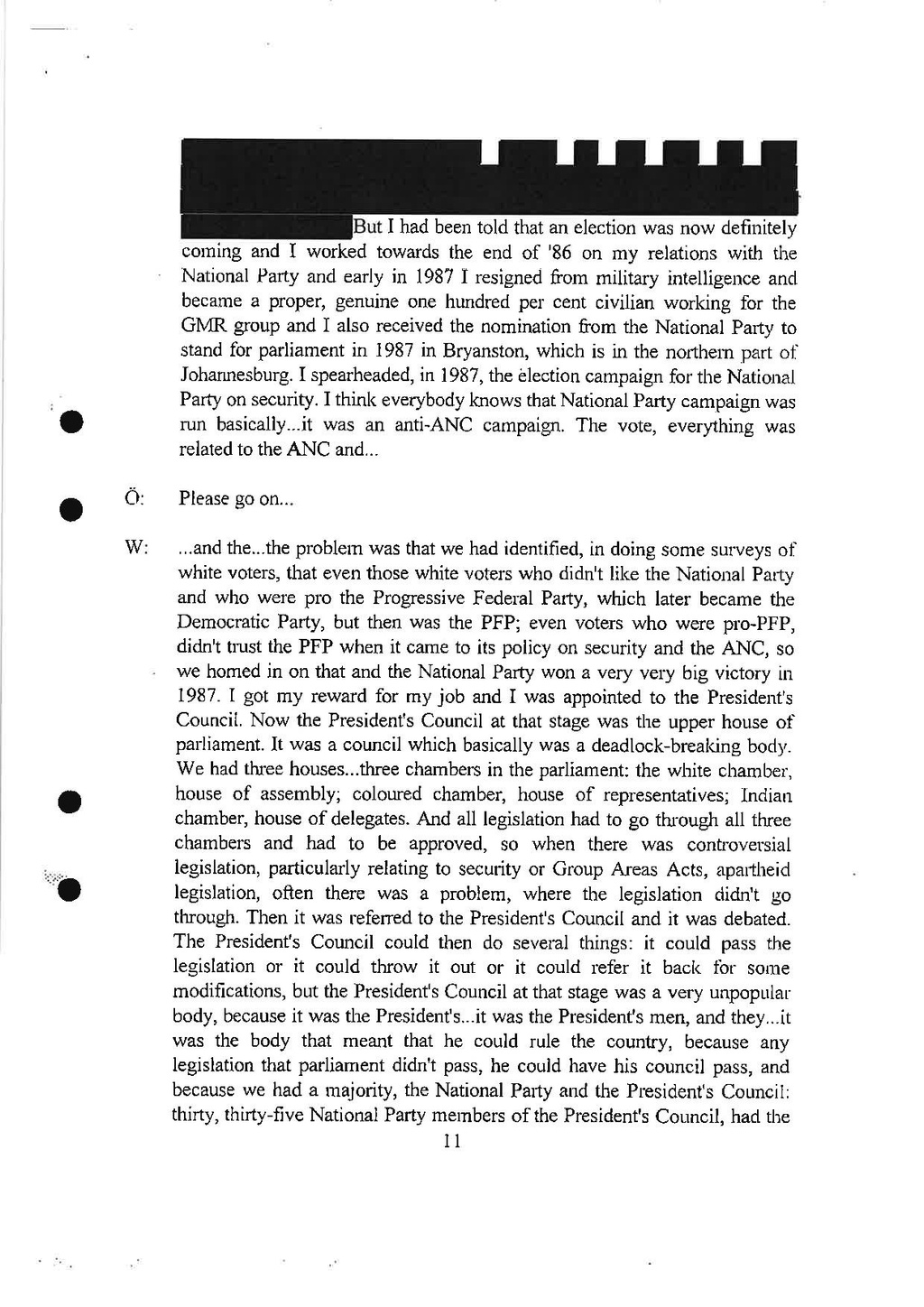But I had been told that an election was now definitely coming and I worked towards the end of 1986 on my relations with the National Party and early in 1987 I resigned from military intelligence and became a proper, genuine one hundred per cent civilian working for the GMR Giovanni Mario Ricci group and I also received the nomination from the National Party to stand for parliament in 1987 in Bryanston, which is in the northern part of Johannesburg.
I spearheaded, in 1987, the election campaign for the National Party on security.
I think everybody knows that National Party campaign was run basically ... it was an anti-ANC campaign. The vote, everything was related to the ANC and ...
Hans Ölvebro: Please go on...
Craig Williamson: ... and the ... the problem was that we had identified, in doing some surveys of white voters, that even those white voters who didn't like the National Party and who were pro the Progressive Federal Party, which later became the Democratic Party, but then was the PFP; even voters who were pro-PFP, didn't trust the PFP when it came to its policy on security and the ANC, so we homed in on that and the National Party won a very very big victory in 1987.
I got my reward for my job and I was appointed to the President's Council.
Now the President's Council at that stage was the upper house of parliament.
It was a council which basically was a deadlock-breaking body.
We had three houses ... three chambers in the parliament: the white chamber, house of assembly; coloured chamber, house of representatives, Indian chamber, house of delegates.
And all legislation had to go through all three chambers and had to be approved, so when there was controversial legislation, particularly relating to security or Group Areas Acts, apartheid legislation, often there was a problem, where the legislation didn't go through.
Then it was referred to the President's Council and it was debated.
The President's Council could then do several things: it could pass the legislation or it could throw it out or it could refer it back for some modifications, but the President's Council at that stage was a very unpopular body, because it was the President's ... it was the President's men, and they ... it was the body that meant that he could rule the country, because any legislation that parliament didn't pass, he could have his council pass, and because we had a majority, the National Party and the President's Council: thirty, thirty-five National Party members of the President's Council, had the
- - 11 -
